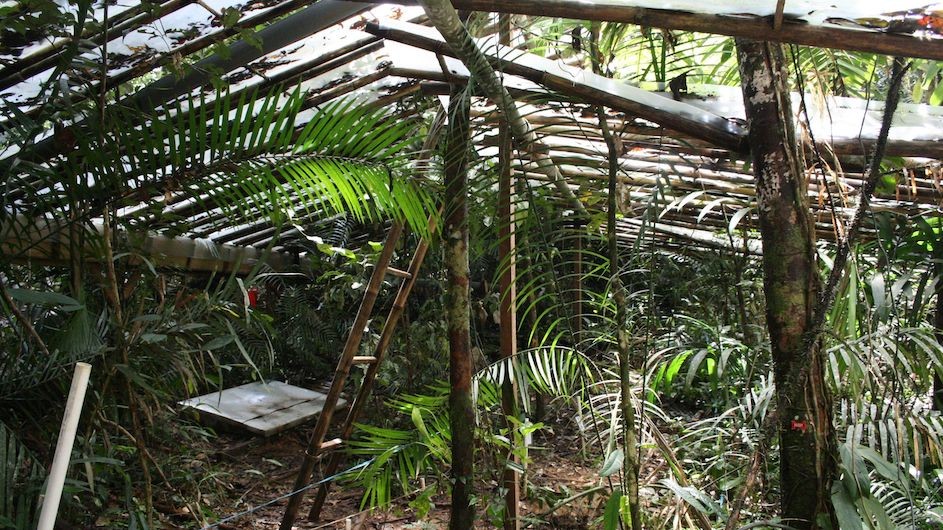It's for this reason that I am working closely with colleagues in Puerto Rico to study the effects of drought and hurricanes on El Yunque National Forest, a tropical rainforest that has a decades-long history as a scientific research site.
Since 2021, my lab has been executing a rainfall manipulation experiment there to examine the rainforest’s recovery after Hurricane Maria, a very severe storm that struck the island in 2017. Essentially, we cover small patches of recovering forest with plastic greenhouse tents that shield them from rainfall coming through to compare how different parts of the forest react to different amounts of water deprivation.
Why study drought? Natural disturbances like storms open up the “canopy” of rainforests, a term we use for the top layer of leaves in a forest. When this happens, the “understory,” the shorter tree growth below the canopy, remains. Following this damage to the canopy, two things happen. First, because the canopy is no longer there to shade them, these understory trees are more exposed to light and heat. Second, new trees that were not present before the hurricane take advantage of the brighter conditions and colonize the understory. Our hypothesis is that these two processes together will make the forest more susceptible to drought. Improving our understanding of the recovery process, including the impact of water deprivation, on re-growing forests is a key challenge for accurately predicting the impact of climate change on tropical forests and assessing their resilience to future climate. The future of forests, and other ecosystems, depends on it.

